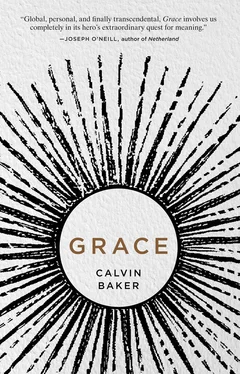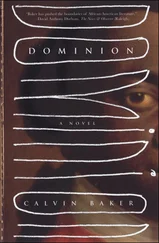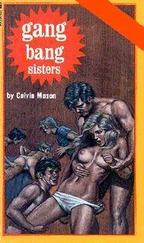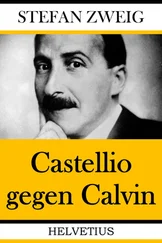All of them were full of talk about what they had seen, and — after a few beers — what they had heard about the rebels on the other side of the mountains. After that, they were full of “Who do you know in London?” and “How about New York?” and “Where did you go last year?” “Where did you study?” “Isn’t the Aussie dollar surging?” “Hasn’t the price of classified Bordeaux just gotten crazy?” “It is the Asian speculators.” “It buoys the Aussies as well, though” and “Now even Everest is gone all to hell.”
“Say, have ever you met the queen?”
“Why, we see her every year at Ascot.”
“What’s Ascot?”
“A horse race.”
“Oh my God! You guys hang out with the queen?! Like how awesome is that?!”
“Like totally awesome!! How come you get to go to the races with the queen?”
“Not exactly with the queen, dear.”
“Well, no, not exactly with her, dear,” Effie said. “But we are more than just in the stadium.”
Sylvie had greater patience than I did, and managed to humor them a bit longer to make certain my irritation did not show enough to put them against us.
I had moved over to a corner of the fire alone, and, when she joined me there under the evening stars, I asked whether she was in the safari club already. “Just because they are not thoughtful people does not mean we should be less thoughtful when we deal with them,” she said cheerfully.
“That’s generous of you.”
“It’s not for them,” she corrected me, as they grew drunkenly loud on the other side of the fire. “It is for myself, and how I want to be in the world.”
I was always moved by the depth of her integrity, how she did not care how others were but remained always true to herself regardless of what there was to lose or gain, and tried hard to be the same way in every action she made and every word she spoke. It made me feel serene to be near, and I loved her for it.
Back in our room we closed the wooden shutters over the window, casting out the world and sealing ourselves in absolute night, and only the occasional sound of them still out on the lawn. But even that could not dispel the tranquility of that deep, certain darkness, the cool, ironed sheets and warmth of her there next to me.
The next morning we were awakened at dawn by the sound of the camp’s grey parrot squawking across the lawn, and made our way to the canteen for a breakfast of ugali , the local porridge, fruit, and hot chai. The Coalition was hung over, complaining the food was not much to speak of, until we finally loaded our packs into a large, military lorry, built to move troops and supplies over the roughest roads, and were off, just after sunrise, across the plains.
We reached our next station by evening, a cluster of platforms high in the trees, covered in white canvas. After we unpacked they fed us again, and we climbed the ladders for an early night, in order to get a good start the next morning on the game in the lowlands.
We awoke high in the trees, and from our roost watched the sunrise; and under the sun, the savannah rolling into the far distance. At the horizon’s edge the silhouette of mountains greeted the plain. The jewel-like dew in the grasses all the way across the savannah reflected back to us the minutes-old light like miniature stars, insufflating us with a feeling of indestructible well-being.
Looking out from the treetops was like looking back in time itself, and, from our ancient perch, the rising sensation of glimpsing with the spirit’s own eye, for a vanishing moment, how people must have first looked at the world.
After joining the others for breakfast in the dazzling early stillness, we hoisted ourselves into the back of the lorry with our daypacks and set out for the plains. The brush was already awake with matutinal animals going to water: the rhinoceros, aloof with power; the graceful, anodyne giraffes; the unruly zebra herds; and everywhere the hyenas lurking, slick and lowdown in the grass.
By midday we still had not seen much large game, though, until we happened upon a pride of elephants plashing in the mud to cool themselves from the torching heat.
“Yes, they do bury their dead sometimes,” Ali said, answering the inevitable question. “They use tools. They have names. They do everything we do.”
The others thrilled and snapped photos with impossibly large camera lenses. I had been on safari before, and was content to soak in the landscape, and clicked sparingly when I had a good shot of the landscape, or animals, or Sylvie, beaming with joy from the bounty of the wide open land.
After the elephants wandered off we drove down to the lake, where a group of villagers had paddled in dugout canoes from the other shore, working their way up and down the banks, trading maize, meat, tin pans, corn liquor, and cloth on a floating market. We bought fruit and nuts from them, which were safe to eat, and took our lunch in the shade near the shore.
After supper that evening we saw our first leopard, dashing across the plains after a Grant’s gazelle he had separated from the herd. “Look at the cheetah,” one of the others called, before another corrected him.
The big cat gave chase, and in the truck some of us were for the leopard, and some for the antelope. When it started, and cut back toward the herd, the leopard seemed to flag, and those who were for the gazelle cheered, until the leopard lunged up in a great desperate leap to take it down.
The group recoiled or else thrilled to the sight of blood, according to their makeup, but were all primed and eager for more.
“Gazelle gets away, life continues. Leopard gets gazelle, life continues,” Ali planed his hand evenly.
“Look, there’s another leopard, up in that tree,” someone called, as Ali brought the lorry to a halt.
We were stopped there beneath it for upward of half an hour, as the leopard slept through the hot afternoon, and the rest snapped endless pictures of the cat, and then pictures of themselves with the leopard in the background.
We spent two more days on the savannah like that, and every day was like the one before it. But Sylvie was happy, and what pleasure I had was in that.
The evening of the third day, as we headed back to camp for the night, the plain was heading to water and eat or else den down hungry. We stopped near a large mudhole, where the hippopotamus and okapi cooled themselves in herd, but suddenly all scattered amid a chaos of bleats and cries, as a dark rumble rolled low and powerful through the earth.
On the other side of the mudhole two colossal lions were circling one another, backing up toward the water. They were uninterested in prey. Off to the other side, a lioness in estrous watched them with supreme indifference.
The lions displayed their manes in turn, escalating the threat in stages until they filled the plains with echoing thunder, which terrified everything within hearing. Even at our distance, with the protection of the truck and guards, we feared being any nearer. The hair of their manes extended on end, until they were present in all their unbridled power and savage majesty.
One of them sprung an instant later, and it was clear, as they fought there, it was not for anything but the abundance of the future, which waited stoically for the hero of that contest, whichever of them it was. Even those in the truck were too awestruck by their battle to wager on it.
The titans rose and fought in the air on uplifted legs with gruesome ferocity, each clawing for the throat of his opponent, before crashing back to the earth, where they fought ever more violently in the dust. It was not long before one of them began to fade, the other to triumph over him. The vanquishing lion, sensing his victory, let loose a thunderous roar in the red evening sun, declaring his dominion over the plain and right to ride further on down time’s arrow.
Читать дальше












